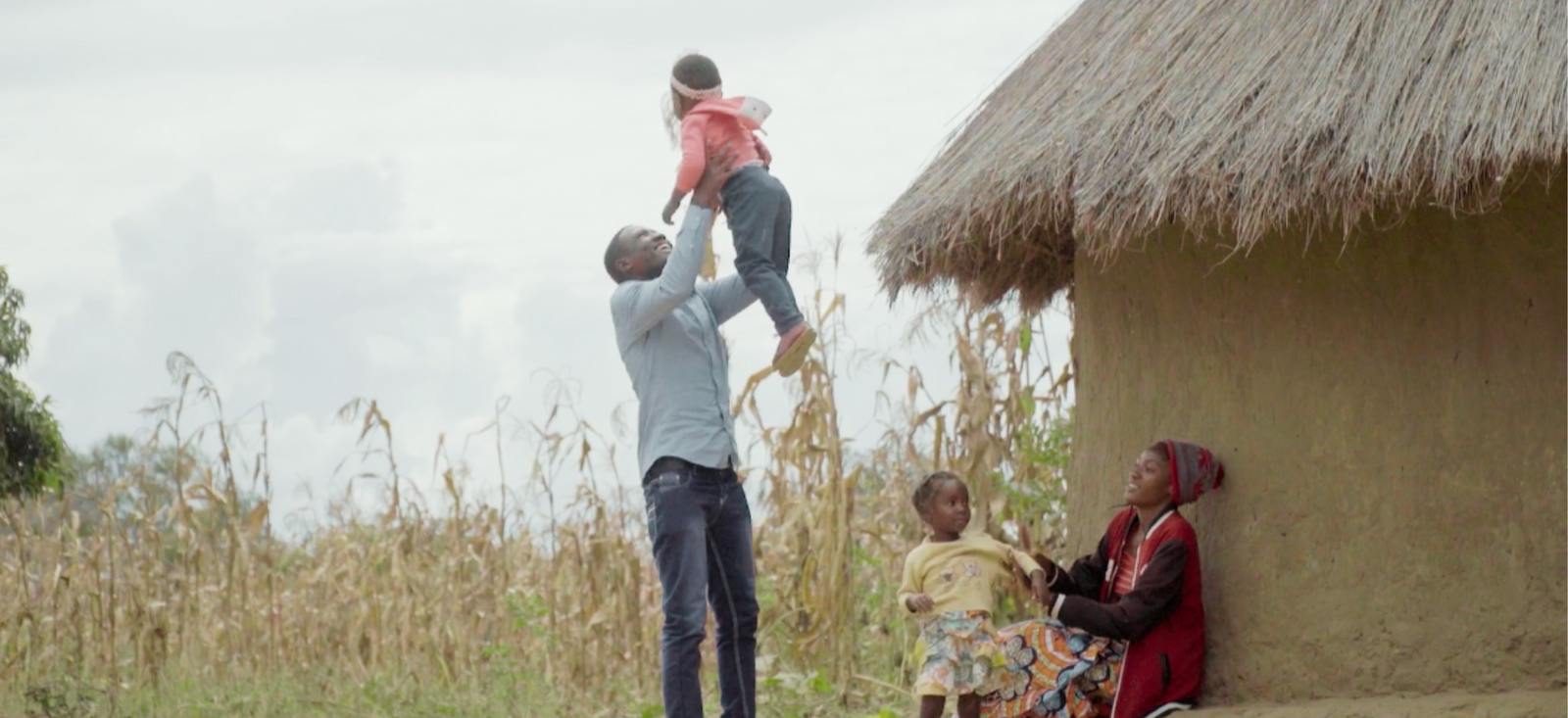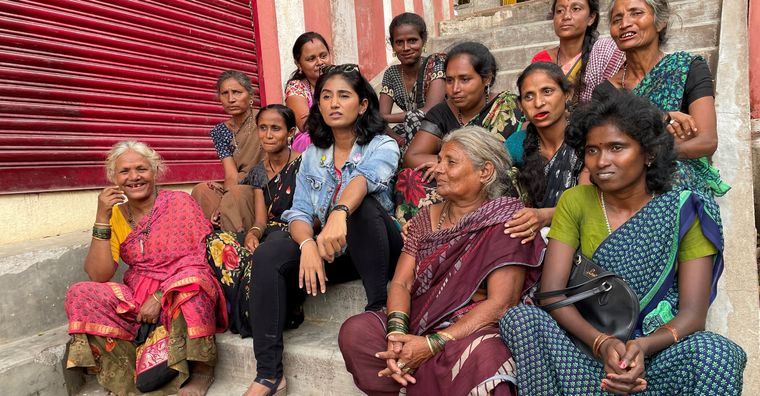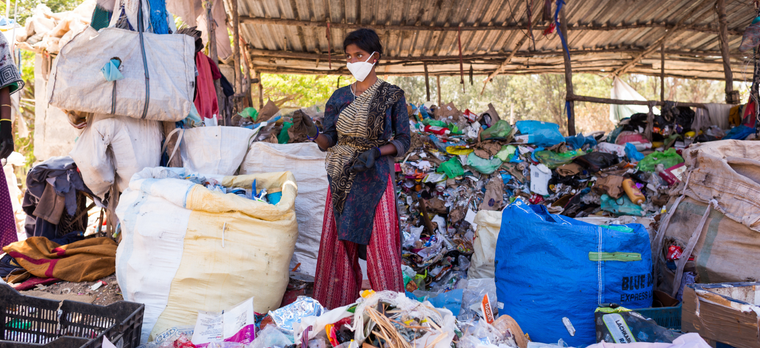Using research to promote engaged fatherhood in Zambia
How research shaped the work of charity, Medical Aid Films, and led to new content that helps young men in Zambia prepare for more engaged fatherhood.

Supportive male involvement in parenting and family life improves women’s and children’s health outcomes. However, many men in under-resourced communities don’t consider that they have a role to play in this. And evidence suggests that men are discouraged by socio-cultural attitudes and a lack of knowledge. Research has revealed a potential role for educational film in both: 1) encouraging supportive male engagement in maternal and child health and 2) helping young men prepare for different approaches to fatherhood.
Medical Aid Films brings together health experts with creative content makers to create engaging, accessible digital content. It has a library of 700 films in 45 languages and puts audiences at the heart of the production process. As Medical Aid Films was established by a midwife and two obstetricians, much of our content focuses on maternal and child health (MCH). This meant it was unexpected when we started to receive reports from health workers that community screenings of our films were attracting large numbers of men as well as women.
This was especially true in Serenje, Zambia, where Medical Aid Films and the Ministry of Health District Health Team set up a film screening outreach project for 18 rural health outposts and facilities, showing a suite of local maternal and child health films dubbed in Bemba language. Anecdotal feedback from health workers reported that there was a perceived increase in men accompanying women to antenatal clinics and facility delivery, with more families choosing to deliver at healthcare facilities rather than at home without skilled birth attendants.
Using research to explore community feedback
This feedback made us realise that we needed to have a greater understanding of how women and men were reacting to our films. With the UNZA School of Public Health, we designed a qualitative study that aimed to better understand the responses of women and men to the film screenings, particularly in relation to male involvement in MCH. This presented an opportunity to:
Add to the limited body of literature on the effectiveness of educational films in maternal
Explore the potential of educational films to reach men
Encourage male involvement in maternal and child health
When designing the study, it was important to focus on understanding men's and women’s perspectives while triangulating this with health workers’ perspectives.
Communication theory, which explores the influence of content, format, messengers and audience expectations upon the effectiveness of communication, informed the development of topic guides.
Data collection tools included focus group discussions with men and women separately, in-depth interviews with antenatal patients and their partners and key informant interviews with health workers.
In our analysis, we generated themes and sub-themes through framework analysis using Nvivo and also conducted a data validation exercise to feedback and test initial findings with communities and health workers.
Our findings
The findings were fascinating. Both men and women reported that the films had improved their knowledge of MCH. Men particularly valued the knowledge and requested more content about their potential role in supporting their wives and children’s health. But they also wanted information about their own reproductive health needs. This included content for younger audiences with information about the benefits of male involvement.
Men also reported that after watching the films, they were aware that they needed to seek skilled care for pregnancy complications and childbirth and of what their responsibilities were regarding accompanying women for antenatal care, delivery and registering the pregnancy. Interestingly, women and men also noticed the films united couples and influenced relationships.
As we analysed the data, it became clear that men understood male involvement as undertaking practical activities. Such activities included purchasing baby clothes, and supporting their wives and children, both as an extension of their ‘head of the household’ role and family provider.
Women’s responses showed that they desire a ‘deeper’ involvement from men. Women needed and wanted more and different types of support around pregnancy, birth and childcare.
Applying research findings
How we were to respond to these findings? There was clearly a need for more content to help men better understand how to support their partners and children. The potential of developing content for boys around being a supportive father and partner also resonated with the Media Aid Films team. Scanning the media landscape, we couldn’t find any content around fatherhood for boys from under-resourced rural areas. After further consultation with partners in Zambia, we developed an adolescent health film screening concept. This included a film on preparing for fatherhood based on our research. This was funded by the donor who had provided the initial funding.
Our ‘Being a Father’ film had germinated:
In subsequent months, we conducted participatory youth-centred formative research sessions with girls, boys and with influential adults (parents, youth and community leaders). Both young people and adults welcomed the concept of developing an educational film on fatherhood. Participants provided insights into the socio-cultural context and norms that influence attitudes around fatherhood and wider gender roles and developed scenarios that depicted the lived experiences of the audience we were engaging with. This formed the basis for script development and contributor selection, with audience testing of both the script and rough cuts before the final version was ready.
The film has made me realize that supporting my wife with house chores and the baby helps her to be a happy wife and good mother and it has taught me to care about my baby and wife's health" – a 21 year old father when watching the film.
The film is currently being screened to youth audiences in Zambia, and the response has been very positive so far. Its effectiveness will be further explored through a mixed-methods evaluation at the end of July. In the meantime, we are receiving requests from youth-led and focused organisations in other African countries to adapt and pilot the series of adolescent health films in their work. It’s exciting to think that one piece of research guided us to support the aspirations of a new generation of young Africans who want to develop new norms around what being a father means.
Helen Coombe
Head of Evaluation and Research at Medical Aid FilmsHelen has worked extensively in research, monitoring & evaluation, programme management and capacity-building roles in the international development sector, focusing mainly on the health needs and rights of unsupported and vulnerable young women and men. She has a masters’ degree in international health and community development and is a qualified youth and community worker. Her current research interests and publications focus on the effective of educational film in public health.

